Deep Ecology: Books
Further resources, if available, can be found in our full bibliography.
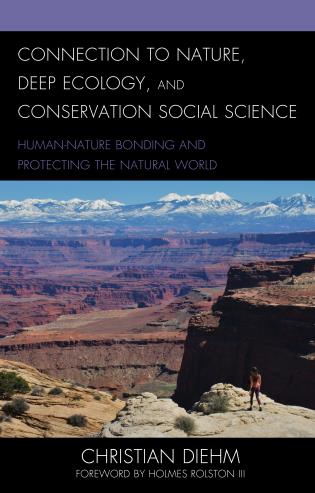
Connection to Nature, Deep Ecology, and Conservation Social Science: Human-Nature Bonding and Protecting the Natural World
Christian Diehm
Lexington Books
2020
In this volume, Christian Diehm analyzes the relevance of the philosophy of deep ecology to contemporary discussions of human-nature connectedness. Focusing on deep ecologists’ notion of “identification” with nature, Diehm argues that deep ecological theory is less conceptually problematic than is sometimes thought, and offers valuable insights into what a sense of connection to nature entails, what its attitudinal and behavioral effects might be, and how it might be nurtured and developed. This book is closely informed by, and engages at length with, conservation social science, which Diehm draws on to assess the claims of deep ecology theorists, resolve long-standing problems associated with their work, investigate the impacts of time outdoors on human-nature bonding, and critically review the biophilia hypothesis. Emphasizing the foundational role of ecologically-inclusive identities in pro-environmental attitudes and behaviors, Diehm demonstrates that having a sense of connection to nature is more important than many environmental advocates have realized, and that deep ecology has much to add to the increasingly pressing conversations about it.
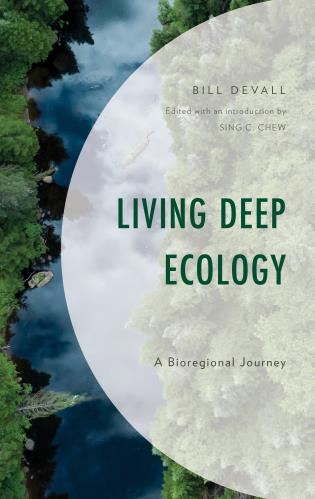
Living Deep Ecology: A Bioregional Journey is an exploration of the evolving relationship between humans and their specific bioregion. The book is set in Humboldt County in northwestern California, in the Klamath-Siskiyou bioregion. By focusing on a specific bioregion and reflecting on anthropogenic changes in this bioregion over three decades, Bill Devall engages the reader in asking deeper questions about the meaning they find in Nature. He addresses questions such as how they relate the facts and theories presented by science with their feelings, intimacy, and sense of Place as they dwell in a specific bioregion. Devall approaches the bioregion not from the perspective of agencies and government, but from the perspective of the landscape itself.
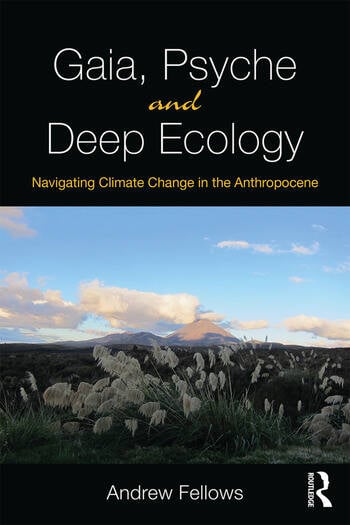
Gaia, Psyche and Deep Ecology: Navigating Climate Change in the Anthropocene
Andrew Fellows
Routledge
2019
In Gaia, Psyche and Deep Ecology: Navigating Climate Change in the Anthropocene, Andrew Fellows uniquely connects Earth systems, Jungian, and philosophical approaches to the existential threats that humans face today. He elucidates the psychological basis of humans’ dysfunctional relationship with nature, thereby offering a coherent framework for the transformation of their personal and professional lives. Demonstrating the imperative for new ideas that transcend the status quo, Fellows tackles unprecedented 21st century challenges such as climate change through his interdisciplinary approach.
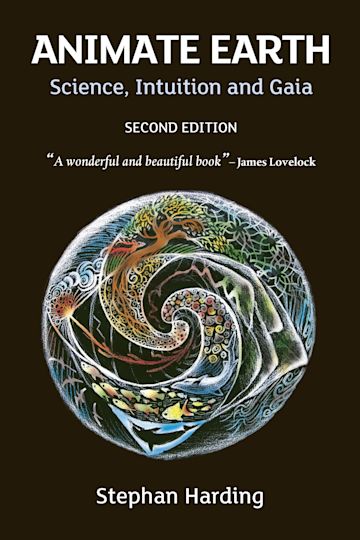
Written by ecologist Stephan Harding, Animate Earth argues that humans need to establish the right relationship with the planet as a living entity in which they are indissolubly embedded—and to which they are all accountable. Harding’s work is based on careful integration of rational scientific analysis with human intuition, sensing and feeling—a vitally important task at this time of severe ecological and climate crisis. He replaces what he considers the cold, objectifying language of science with a way of speaking of the planet as a sentient, living being rather than as a dead, inert mechanism. Chemical reactions, for instance, are described using human metaphors, such as marriage, to bring personality back into the world of rocks, atmosphere, water and living things. In this sense, the book is a contemporary attempt to rediscover anima mundi (the soul of the world) through Gaian science, whilst assuming no prior knowledge of science.
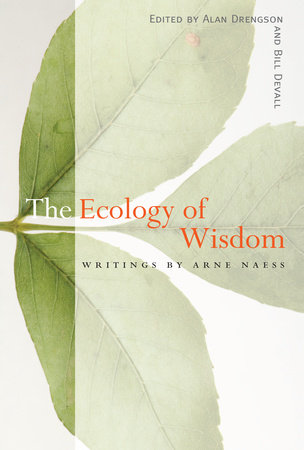
A founder of the Deep Ecology Movement, Arne Naess has produced articles on environmentalism that provided unmatched inspiration for ecologists, philosophers, and activists worldwide. This collection amasses a definitive group of Naess’ most important works in which he calls for nonviolent, cooperative action to protect the Earth. Rich with observations, insights, and anecdotes, Naess’ writings draw from Eastern religious practices, Gandhian nonviolent direct action, and Spinozan unity systems. Playful and compassionate in tone, Ecology of Wisdom showcases Naess’ exceptional enthusiasm, wit, and spiritual fascination with nature, while educating readers about the steps they must take to rescue the planet and illuminating the relevance of this important environmental advocate. See also The Selected Works of Arne Naess: Volumes 1-10.
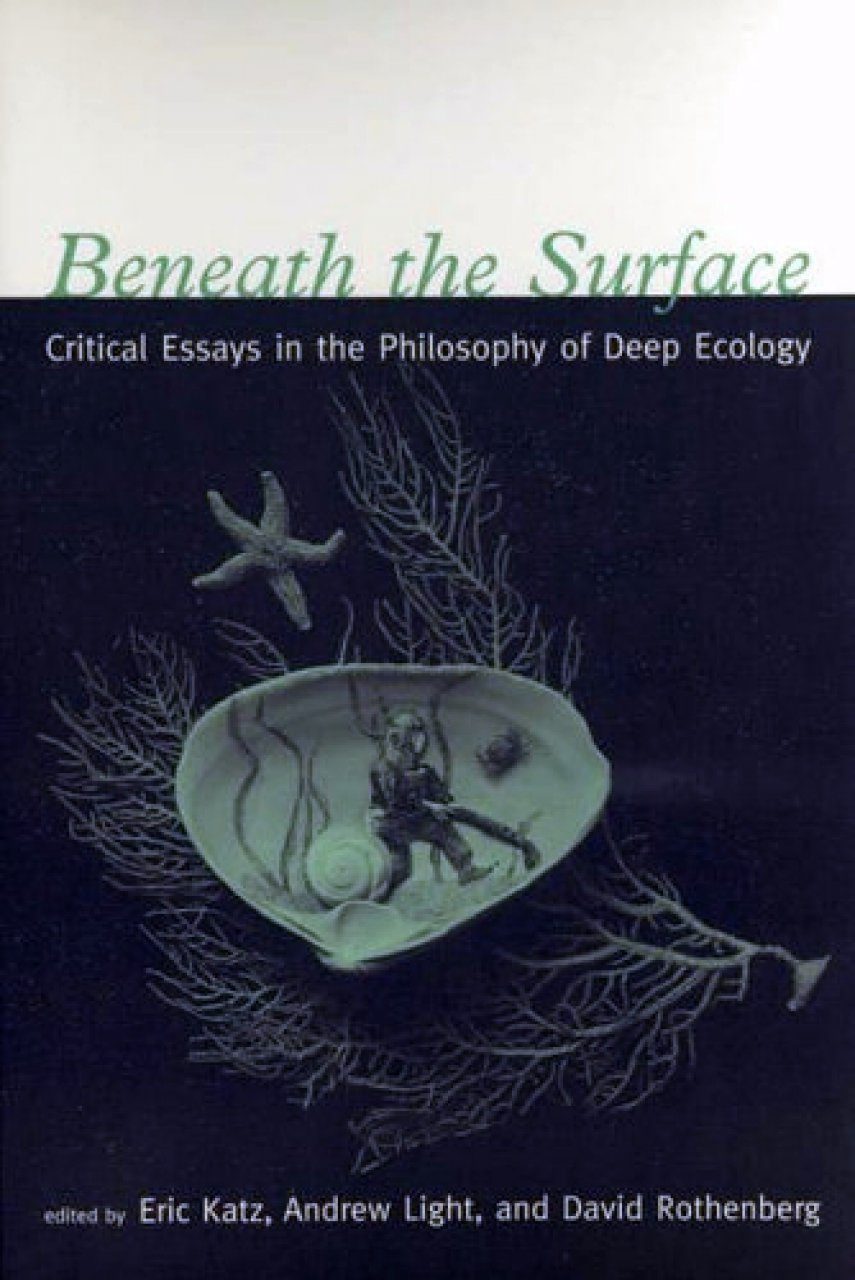
Beneath the Surface: Critical Essays in the Philosophy of Deep Ecology
Eric Katz, Andrew Light, David Rothenberg
The MIT Press
2000
The philosophy of deep ecology originated in the 1970s with the Norwegian philosopher Arne Naess and has since spread around the world. Its basic premises are a belief in the intrinsic value of non-human nature, a belief that ecological principles should dictate human actions and moral evaluations, an emphasis on noninterference into natural processes, and a critique of materialism and technological progress. This book approaches deep ecology as a philosophy, not as a political, social, or environmental movement. In part I, the authors compare deep ecology’s philosophical ideas with other positions and debates in environmental philosophy and to other schools of thought such as social ecology, ecofeminism, and moral pluralism. In part II, they investigate the connections between deep ecology and other contemporary world views, such as continental philosophy, postmodernism, and non-Western philosophical traditions. The first anthology on deep ecology that is not primarily the work of the movement’s followers, Beneath the Surface offers a rigorous assessment of deep ecology’s strengths and weaknesses as a philosophical position.
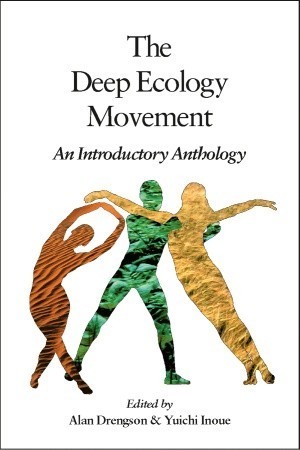
The Deep Ecology Movement: An Introductory Anthology
Alan Drengson, Yuichi Inoue
North Atlantic Books
1995
Deep ecology, a term coined by noted Norwegian philosopher Arne Naess, is a worldwide grassroots environmental movement that seeks to redress the shallow and piecemeal approach of technology-based ecology. Its followers share a profound respect for the Earth’s interrelated natural systems and a sense of urgency about the need to make profound cultural and social changes in order to restore and sustain the long-term health of the planet. This comprehensive introduction to the Deep Ecology movement brings together Naess’ groundbreaking work with essays by environmental thinkers and activists responding to and expanding on its philosophical and practical aspects.
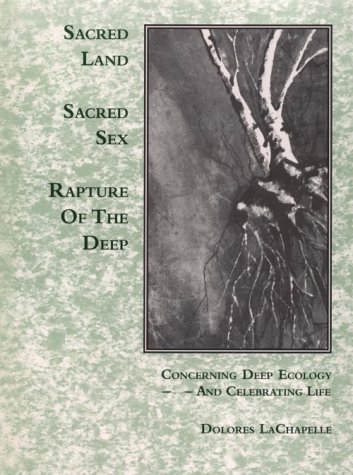
Sacred Land, Sacred Sex: Rapture of the Deep: Concerning Deep Ecology and Celebrating Life
Dolores LaChapelle
Finn Hill Arts
1988
This work serves as a handbook on deep ecology described by one commenter as “A Book of Common Prayer for the deep ecology movement.” Sacred Land, Sacred Sex serves as an example of deep ecology literature for scholars and as a practical guide for ritual, practice, and philosophy for nature enthusiasts, as well as serving as an integration of Taoism into Deep Ecology thought.
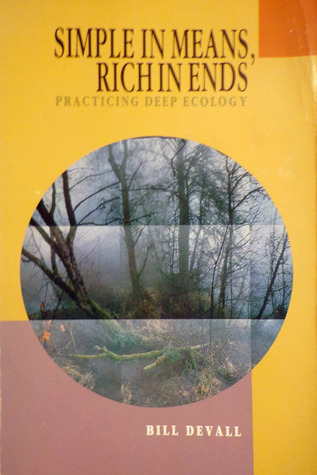
Discusses the long-range ecology movement, looks at conflicts between lifestyles and ecological goals, and points out ethical issues as well. See also: Living Richly in an Age of Limits.
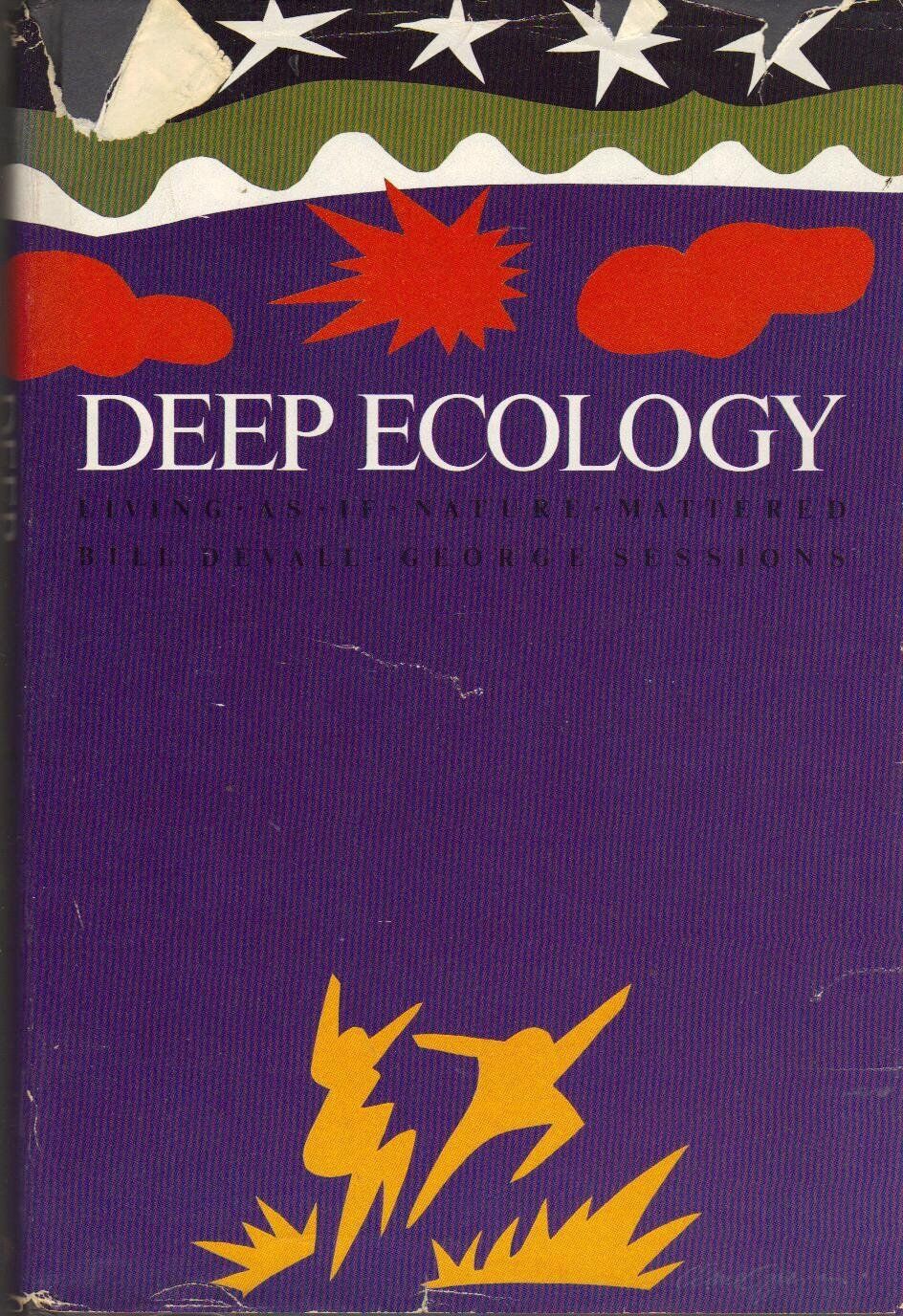
The environmental problems of technocratic-industrial societies are increasingly seen as manifestations of what some individuals describe as “the continuing environmental crisis.” This is coming to be understood as a crisis of character and of culture. The authors believe that humans may not need a new ecological philosophy, but need to reawaken something very old, to reawaken their understanding of Earth wisdom, to cultivate an ecological consciousness. The themes in this book, originally published in 1985, alternate between personal, individual options and public policy and collective options.
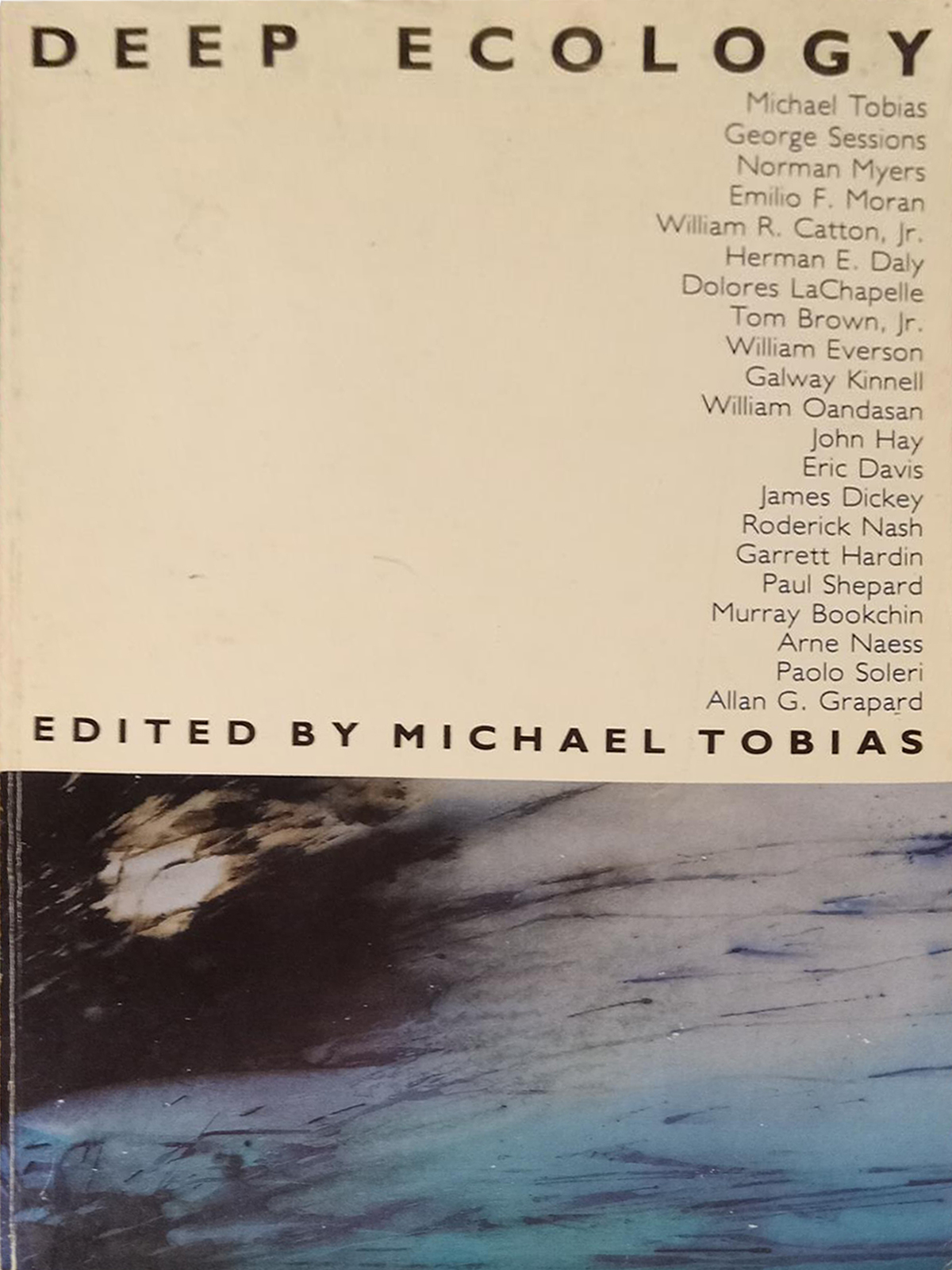
Alongside Devall and Sessions anthology on the same topic, Tobias’ Deep Ecology was one of the first works to present deep ecology to a wider English-speaking audience. Features writing by Murray Bookchin, James Dickey, Galway Kinnell, Paolo Soleri, Arne Naess, and Eric Davis.
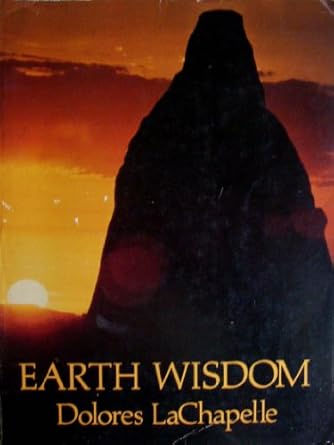
This book by Dolores LaChapelle provides a background on LaChapelle’s personal journey towards a deep ecology philosophy, as well as her practical advice on developing a deeper relationship with the living Earth.
Photo Credit: Gildardo RH/Unsplash